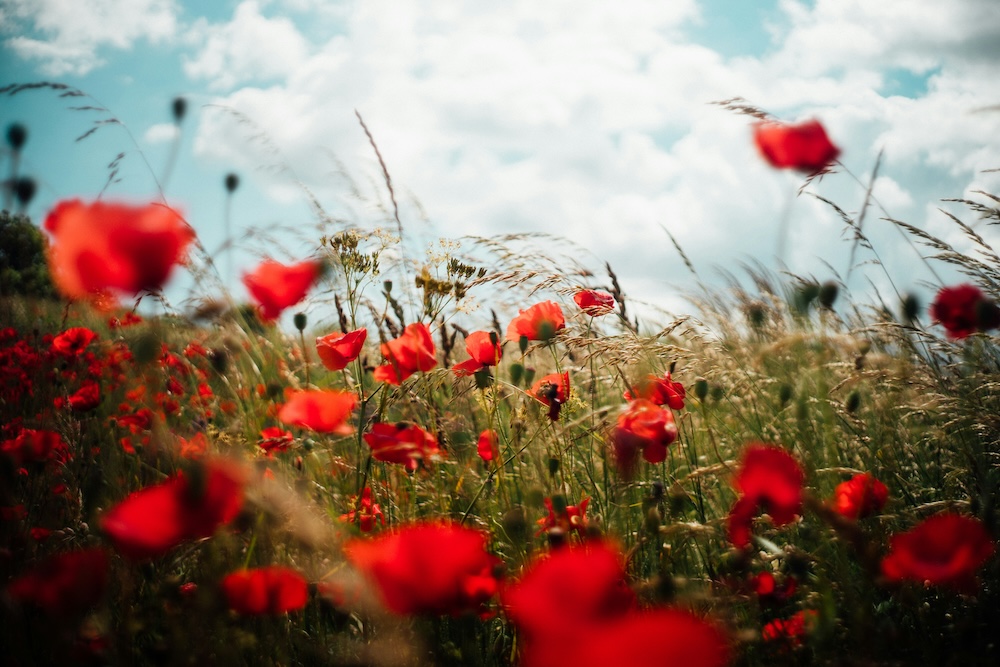80 years on, IWA Fellow Roger Lewis reflects on VE day, 8th May 1945.
15,000 Welsh service men and women were killed in World War II. Hundreds of people were killed in the Blitz bombing attacks across Wales, and thousands worked tirelessly on the land, in factories and in coal mines to support the war effort. It is estimated that 300,000 Welsh men and women served in World War II. The war and its aftermath left an indelible stain on families all over Wales, and all over the world. The relief and joy, with the lifting of such extraordinary burden, sorrow, hardship, pain, and suffering, must have been immense on May 8th, 1945.
And tonight, the pubs in Wales have been granted a license extension and will be open until the early hours of tomorrow morning to celebrate VE Day, 80 years on. No doubt there will be much revelry and carousing. Victory in Europe is a distant but still vivid memory for some, a story of a bygone age told by parents and grandparents to many, and for others it may be something that has yet to register. Across Europe, this day is recognized and marked, with some countries holding public holidays. Victory in Europe today will be remembered by millions. This evening, without doubt, and quite rightly, glasses in memory of those who sacrificed so much with innumerable acts of self-sacrifice and heroism will be raised, and few will quibble with those who will roll out the barrel with gusto tonight. And some will quietly remember those who did not return.
Victory in Europe is a distant but still vivid memory for some, a story of a bygone age told by parents and grandparents to many, and for others it may be something that has yet to register.
It was Winston Churchill who said on May 8, 1945 that “victory is the cause of freedom” and “in all our long history we have never seen a greater day than this.” Churchill in his speeches that day recognised the “overwhelming power and resources of the United States of America” and emphasised that “we shall pay a particular tribute to our heroic Russian comrades, whose prowess in the field has been one of the grand contributions to the general victory.” Four out of every five German soldiers who died in World War II were killed in the later stages of the war, on the Eastern Front, primarily by the Soviet Union. The Soviet Union lost over 26 million people. The total German deaths, including military and civilian casualties, are estimated to be between 6.6 million and 8.8 million. The roll call of death is numbing.
Last week, the 80th commemoration of the liberation of the Bergen-Belsen Nazi concentration camp took place in the vast, still, and silent space where the buildings of the death camp once stood. I had the humbling and somber experience of being present as a guest.
Syniadau uchelgeisiol, awdurdodol a mentrus.
Ymunwch â ni i gyfrannu at wneud Cymru gwell.
Belsen was liberated by British forces on April 11 1945, following a truce with local German commanders. On that day, British soldiers discovered over 60,000 prisoners inside, most of them seriously ill, suffering from typhus, starved, and dying. There were 13,000 corpses lying around the camp unburied. A further 14,000 died after the liberation as their bodies could not cope with the rich sustenance offered to them. There were no gas chambers at Belsen. It was a holding camp, designed for 10,000. It is estimated that up to 70,000 people died in the Bergen-Belsen camp complex due to Nazi cruelty. The vast majority held were Jews, Soviet prisoners of war, political prisoners, Romanies, “asocials,” along with gay men and women and countless unknown others. There are now numerous large stone walled mounds at the site which simply say how many unknown thousands are buried in these mass graves.
Richard Dimbleby, the BBC correspondent, accompanied the British 11th Armoured Division in the liberation of Bergen-Belsen and was the first broadcaster to report from the camp. It is an extraordinary piece of journalism. The enormity of the horror of the Holocaust was unknown by the British public at that time and BBC bosses in London struggled to believe that the horrors which Dimbleby described were real. The BBC declined to broadcast his report, relenting only when Dimbleby threatened to resign. An edited version was finally broadcast on April 19th, 1945.
At last week’s commemoration, dignitaries from Germany, the UK and Israel spoke. And there were commemorative speeches by survivors. Their dignity, their witness, their strength were quietly overwhelming. Marla Tribich, born in Poland and now living in London, was one of the speakers. After her speech I humbly thanked her for her words. Marla, 94 years of age, was a young teenager when she was moved to Bergen-Belsen early in 1945 from another Nazi concentration camp at Ravensbrück.
Reflection and remembrance tonight will be unimaginably painful for those who experienced and who can still remember the horrors.
Marla and her young brother were the only members of her immediate family who survived the horrors. She was at the camp when another young teenager arrived, Anne Frank, transferred from Auschwitz. Anne Frank died at Bergen-Belsen in February or early March 1945. Six million Jewish people were murdered in the Holocaust, 2.7 million in 1942 alone with the overwhelming majority murdered long before 1945. VE Day was a distant hope and prayer.
And so, celebrating this evening will be difficult for many. Some will remember that the fighting in 1945 continued until the surrender of Japan in August of that year. The suffering for millions of others continued for years thereafter. Reflection and remembrance tonight will be unimaginably painful for those who experienced and who can still remember the horrors. This day and every day for them must surely be a day for reflection and remembrance.
Marla Tribich said that she hopes that: “nothing like that will ever happen again, and of course, it’s up to us to guard against it, and I hope that some people have learned the lessons.
“The world is different today. Different things are happening which are not very palatable, not very acceptable, but we must just constantly work against those terrible forces around us that make terrible things happen.
Gofod i drafod, dadlau, ac ymchwilio.
Cefnogwch brif felin drafod annibynnol Cymru.
“We have seen that it could happen again, and we must take every step not to let it.”
Tonight, within this heartbreaking and painful backdrop, is a night for celebration: celebrating the bravery and resilience of all those who fought and worked so hard for the cause of freedom, for those who made the ultimate sacrifice, and for those who continue to ensure that we do not forget. Winston Churchill’s words of 80 years ago are worth repeating: “This is your victory, victory of the cause of freedom in every land. In all our long history we have never seen a greater day than this. Everyone, man, or woman, has done their best. Everyone has tried, none have flinched. Neither the long years, nor the dangers, nor the fierce attacks of the enemy, have in any way weakened the unbending resolve of the British nation. God bless you all.”
All articles published on the welsh agenda are subject to IWA’s disclaimer. If you want to support our work tackling Wales’ key challenges, consider becoming a member.





